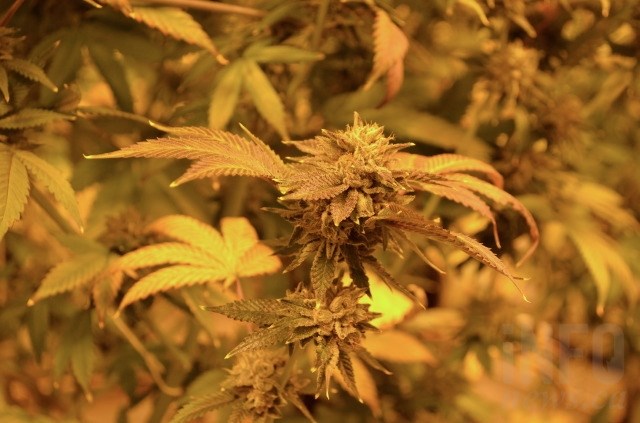
(CHARLOTTE HELSTON / iNFOnews.ca)
June 13, 2017 - 8:00 PM
KELOWNA - The outcome of a Kelowna court case has changed the legal landscape for those facing production of marijuana for the purpose of trafficking charges.
Keith Steven Elliott was charged in connection with his role in a 195-plant grow operation in the basement of a home in a residential area of Kelowna. His involvement was limited to trimming plants for $20 an hour, according to a Court of Appeal decision from June 9. He was out of work at the time, and entered the arrangement due to his poor financial situation. He was aware the operation involved the sale of marijuana to drug dealers for resale on the black market, and continued working there for roughly two years until the operation was busted in June of 2013, according to the decision.
Under the Controlled Drugs and Substances Act, anyone who produces marijuana for the purpose of trafficking is liable to a mandatory minimum imprisonment of six months if the number of plants produced is between six and 200.
The sentencing judge found that provision unconstitutional based on a complex legal test that examines whether or not the mandatory minimum would be grossly disproportionate for hypothetical offenders — for example a medical patient growing for himself and his sick friends who cannot afford to buy from federally-regulated producers.
“I note that a six-month sentence is typical for a first-time trafficker involved in a relatively sophisticated commercial dial-a-dope operation. Imposing that sentence on a 19-year-old student or a migraine sufferer who is growing six plants intending to share them with friends would, in my view, be abhorrent to most Canadians,” the sentencing judge said.
Instead of jail time, Elliott received a suspended sentence with two years probation.
The Crown appealed the ruling, and the case went to the province’s highest court, the B.C. Court of Appeal. On June 9, the Court of Appeal upheld the decision.
Lawyer John Conroy, who defended the case, says it sets a strong precedent for marijuana cases in B.C.
“The mandatory minimum has been struck down as unconstitutional,” he says. “It’s binding on all courts of B.C.”
The case isn’t binding in other provinces, but could be used by lawyers outside B.C. to argue that mandatory minimums be set aside, Conroy says.
The Abbotsford-based criminal lawyer says it’s puzzling that with the federal government’s pending legalization of marijuana, prosecutors are still pursuing mandatory minimums at all.
“They (Liberals) got elected in 2015 and said they were going to legalize. Now it’s 2017 — you’d think they’d at least stop seeking mandatory minimums,” he says.
The mandatory minimums were established under the Stephen Harper government, and Conroy would sooner see them gone.
“Hopefully this (decision) will send a message to our government about getting rid of some of the things the Harper government did and getting back to individualized sentences,” Conroy says.
He says the Crown still has time to appeal the case, in which it would go to the Supreme Court of Canada.
To contact a reporter for this story, email Charlotte Helston or call 250-309-5230 or email the editor. You can also submit photos, videos or news tips to the newsroom and be entered to win a monthly prize draw.
We welcome your comments and opinions on our stories but play nice. We won't censor or delete comments unless they contain off-topic statements or links, unnecessary vulgarity, false facts, spam or obviously fake profiles. If you have any concerns about what you see in comments, email the editor in the link above.
News from © iNFOnews, 2017